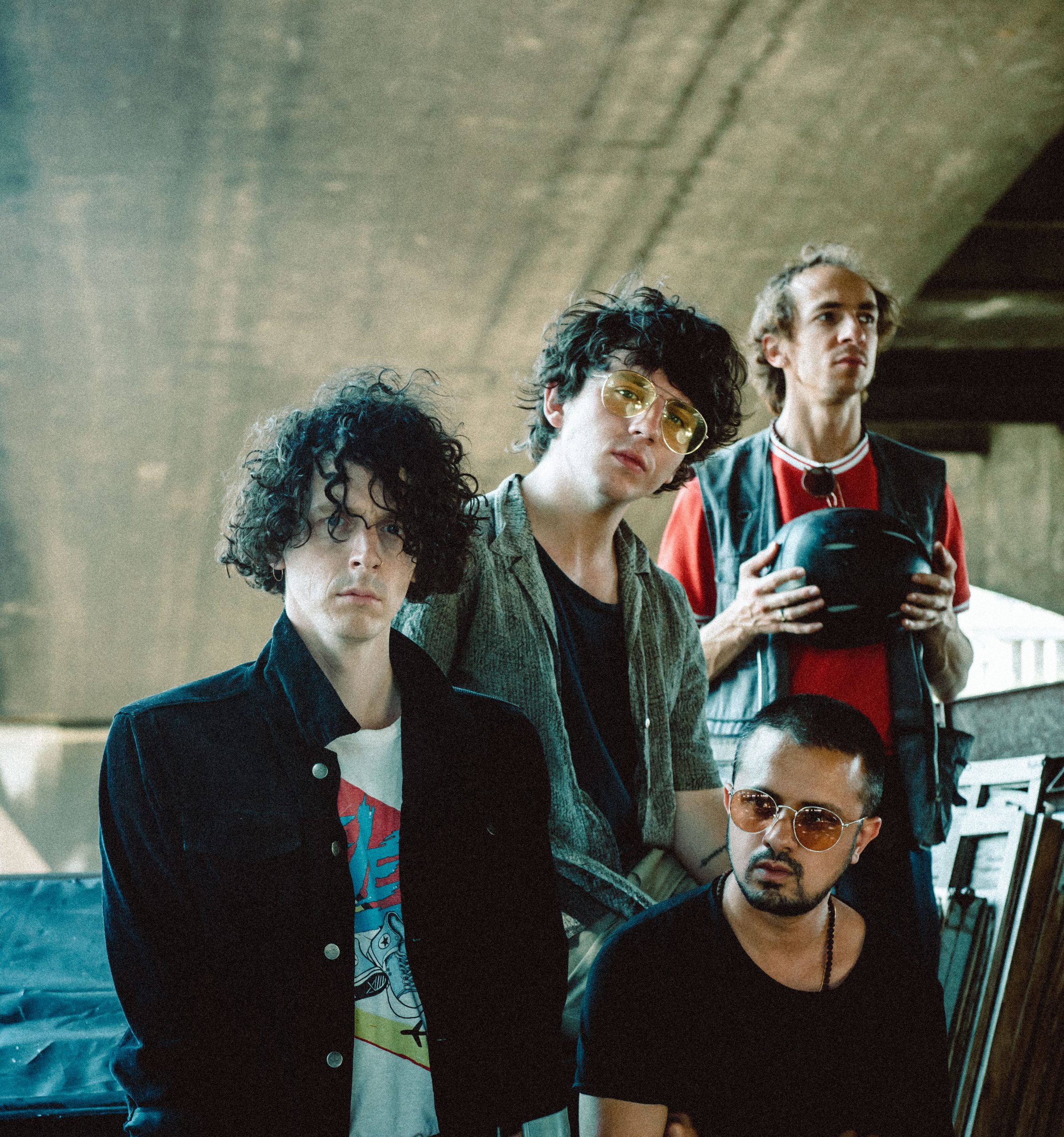
Mystery Jets finally release their fantastic new album ‘A Billion Heartbeats’. The release follows the album’s postponement last September due to lead singer Blaine Harrison’s ill health. Mark Millar caught up with Blaine to talk about the album, witnessing protests in Trafalgar Square, the NHS and COVID-19.
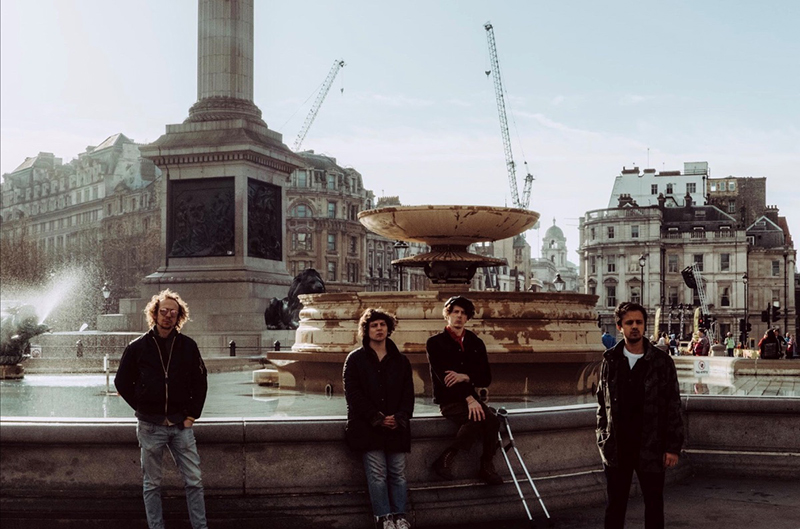
Mystery Jets release your 6th studio album A Billion Heartbeats on 3rd April. The release follows the album’s postponement last September due to your ill health. Are you feeling better?
BH: Yeah, I’m feeling ironically much better. I was getting my strength back and getting fit, and I was preparing to go back out on the road and take all these songs to people, but you can never predict the way that the cookie crumbles. The situation has changed, and we are having to slightly alter our touring plans for the year as is every artist and every band that I know.
It’s going to be one of those years that none of us will ever forget for different reasons. But at the same time, I think we are unified in our battle against a common enemy. To be slightly philosophical about it the past four years of polarity in politics and society has very much been the landscape that shaped the songs on our new album and I think that landscape has now significantly changed. Although I believe it is challenging to navigate through it and to see what the future looks like – I have a sense of optimism at the moment.
A lot of the troubles that the world was trying to come to terms with will slightly melt away because of a lot of the problems to do with us creating these barriers and artificial man-made divisions in society, whether it’s political differences on the right or left and cultural divides or gender divide and age divide. All these things that are human constructs all seem suddenly very small in comparison to the way that the world has changed in recent times. So, in that sense, I do feel optimistic.
I agree with you. Being from Northern Ireland, I have been having a similar conversation with my friends. People are forgetting about the divide and are coming together, and hopefully, when we all come out of this, however long that will be, I hope that people will look at each other differently.
BH: I think they will, and the example you gave in terms of Ireland is such a paradigm of what we are talking about. Again to look at it slightly philosophically, maybe it’s the universe’s way of teaching us to see ourselves as a whole again. I think that’s been one of the defining characteristics of these times is that we don’t see ourselves as a whole and that’s very much what we were trying to address with the songs we have written. It was to examine different perspectives on problems which exist in today’s society and trying to find the truth. I think the way that you find the truth is by listening.
The internet has facilitated everyone having a voice, and in a sense, it’s democratised the way that we communicate. But at the same time, we’ve become less in tune at listening to each other, and that was the backbone of these songs. I went to a lot of protests and marches for over eighteen months. I went to the demonstrations to hear both sides of the story because I think the way that the mainstream media has these rhetorics and narratives it is very easy to have your world view shaped by that. I think when you go to a protest it’s a fantastic opportunity to hear the passion and to experience togetherness differently. That’s why we go to festivals – I have always said that protests are like festivals of resistance; it’s a very similar draw that takes us there. Particularly the way that we consume music increasingly is on headphones going to work or in the car and on the train – whatever it is, but actually, when you experience music with total strangers, it creates this incredible sense of commonality in your experiences. I think I felt very much the same thing going to a protest.
The video for the album’s title track ‘A Billion Heartbeats’ was filmed in Trafalgar Square where you witnessed some of the protests. What protests did you attend?
BH: Yeah, that’s precisely why we went to film in Trafalgar Square. We went there first thing on a Sunday morning about 5 am before anybody came to throw us off which meant we managed to get the empty shots. The significance of Trafalgar Square is very crucial to the context of the record because the songs were written during this period of a year and a half when I was living just off Trafalgar square.
I was very fortunate to find this empty building which needed some people to live in it to stop people from breaking in to vandalise the place. So I was living there, and each weekend I would step outside my front door, and I would attend a different march. I attended everything from the anniversary of the NHS to Black Lives Matter to Solidarity for Child Refugees. I also went to a far-right Britain First protest to figure out why those guys were so angry.
I suppose I tried to use Trafalgar Square as a base from which to explore what was going on in society at that particular time. I was living there in 2017 in the wake of the EU referendum and Trump had just gotten into office, and the refugee’s crisis was hitting its apex, so it was a very pertinent time to be living in that area. Trafalgar Square has been the home of the protest of democratic gatherings in this country for the last 80 or 90 years, so it was an incredible opportunity to see the front line of all that.
The first single from the album, ‘Hospital Radio’ is an ode to the NHS and the staff that have helped you for most of your life spending time in hospitals due to having spina bifida. The song is especially apt because of what the NHS is dealing with now with COVID-19.
BH: Someone once said that the NHS is the closest thing we have to a religion in this country and that’s never felt more accurate than what we have right now. It’s in these times we really appreciate people that actually keep society on its feet and I think with that song it felt so important for me personally to express my gratitude for having access to healthcare as a disabled person growing up in this country. I have toured a lot in my life, and I have got sick in different parts of the world, and I’ve got ill on both parts of the Atlantic.
Having needed to have urgent healthcare in America, I can tell everyone in this country that that is something you would not want to experience. It was cheaper for me to fly home to the UK than it was to have a course of antibiotics and have the urgent care that I needed when I was sick over there. I think in a way a lot of the songs on the record come from looking at other people’s experiences living through these times and trying to find a way of empathising with strangers that are going through things. In terms of ‘Hospital Radio,’ I’d say that’s probably the closest thing to an autobiographical song because it is stemmed in my own experience.
You knew what kind of subjects you wanted to write about for A Billion Heartbeats but did you have a preconceived idea of what the sound would be for the record?
BH: Yeah, I think we felt with Curve of the Earth we rediscovered the alchemy that existed between us when we first started. We’ve had lineup changes over the years, but in terms of the core members, we rediscovered the love for getting into a room together and making something from nothing.
I feel very proud of that album. We self-produced it with an engineer. It took us almost fifteen years to find the confidence to get behind the mixing desk ourselves and sculpt our own sound. So we very much wanted to work in the same way on A Billion Heartbeats. We made it in our studio, and that’s why it took a year to make. I think the thing that you do get when you work in that way is that you live and breathe the music because the studio is in the same building that I live in. And so sonically, I would say that it’s cut from the same cloth as Curve of the Earth.
It was the same lineup and same engineer and the same studio so it’s very much a sister record. Although I think the difference is much more in the lyrics because Curve of the Earth is quite an inward-looking album. Although it has got a grandiose title it’s really about looking back at earth and looking back at ourselves. In contrast, A Billion Heartbeats is much more about looking out of the window at the world around you and trying to understand what’s going on.
It must be a frustrating time for the band. Not only have you had to postpone the release of A Billion Heartbeats but now when it finally is due for release you can only put it out on digital and streaming platforms until it gets a physical release due to the coronavirus. Also, live dates have to be rescheduled again.
BH: I’m not going to lie – it is difficult and frustrating because the album was ready to go a year ago. As you have pointed out it was going to be released in September, and then it got pushed back to April, and then now the physical release is pushed back to as soon as life can resume. It may be June or it may be September – it is hard to tell at this point.
One thing we felt was these songs need to be out there in the world. Obviously, things like chart positions are affected, and we’ve had to pull all our billboards and tube posters, but I just feel like they are first world problems and all that stuff is a little bit inconsequential when you think about what’s going on so I’m just happy that the songs are going to be out there in the world doing their thing, and when we do get to tour the record maybe people will have had time to make friends with the album and let the songs get under their skin a little bit.
I think that’s always so rewarding as an artist when you go out, and people have had that gestation period with your music and because the response you get is fantastic because people will know the words and they’ve made a bond with the record. I am looking forward to experiencing that when we do get out there.
How did you feel when founding member, guitarist and vocalist of the band William Rees announced his departure from the group at the beginning of the year?
BH: It was something that was coming for a little while. Will is my best friend we started the Mystery Jets together when we were eight years old, so it’s existed almost as long as we have, but at the same time, I think when a musician feels the itch to go out there under their own name and make music for themselves, I think it’s an itch you have got to scratch and Will had been feeling that itch for a little while perhaps even since Radlands our fourth album.
When he came and told us, it was very emotional, and we helped him talk through it all and make sure it’s what he wanted to do. I still see Will every day. His studio is in the same building as the band’s studio, so in a way, it’s like nothing has changed. Mystery Jets is very much a family band. My dad is in the band, and Will and I went to nursery together, so he is the closest thing to a brother that I’ve got. The thing about family is the blood runs deep, and who knows what the future holds? I think we will always have that connection and we will always be involved in music together in one way or another, whether it’s under the bands’ name or not.
Themes from A Billion Heartbeats inspired an evening of conversation filmed for YouTube where you had panellist discussions on climate change, gender equality and the refugee crisis. It was a great thing for the band to do. Will you be doing more?
BH: We very much intended it to be a series. We had a date booked in Manchester, and we wanted to do one in Glasgow. It would have been amazing to do one over in Belfast, but COVID-19 has slightly put an obstacle in our tracks. We are looking at ways of having an online discussion with some more guests, so that’s very exciting.
The reason behind it was at the end of last year, there was the leadership debate in this country. I felt like a lot of people didn’t feel represented in the ‘Question Time’ type shows on TV and I felt like creating a platform for people who feel marginalised from mainstream politics to have a chance to speak about things the way that they see them. And that means inviting people from different communities in our society, such as people from the LBGTQ community, people from the disabled community, and having conversations about mental health and gender equality.
I think all these conversations feel like everyone has got a view on them and I think it’s so essential that people’s voices are heard and it’s not just the same talking heads that we get on mainstream TV networks. We saw it as our place as artists to use our platform to create a safe space for people who feel marginalised from those conversations to have a voice.
Will you be using this time on lockdown creatively by playing live on socials and songwriting?
BH: It’s something we are talking about every day figuring out different ways we can speak to our audience and find a way of sending our music out there. I would say to people to stay tuned because we are going to post things in the coming days. It’s been so incredible seeing the ways that artists have found ways to use what they have at their disposal to still make music and I think music is so needed in these times. Music is still the strongest medicine that humankind has invented. So we will be participating very shortly we are just fine-tuning all the tech side of things at our end.
As previously mentioned, A Billion Heartbeats is Mystery Jets 6th album. Bands who started the same time as you have been and gone. What’s the secret to your longevity?
BH: I think it goes back to what I was talking about the band feeling like a family. It’s all I have ever done since I was a kid and it’s part of my nature. I have been in the Mystery Jets longer than I’ve not been in the Mystery Jets. (Laughs) The music industry has changed so much in the time that we have been touring as a professional band and in a way the world has changed so much in the way that we consume music has changed so much, but actually, some things never do change, and the feeling of getting in a room with people you love and making something from nothing and having a musical dialogue with your best friends is the reason we all do this.
The secret is to find your gang because we are a gang although people come and leave and come back, we wouldn’t want to be in any other gang. That’s what I would advise anyone who is getting into music is just find your gang. Even if it’s just you and your manager or you and your booking agent or whoever, just find people that believe in you and stick together and that’s what we have done.
Listen to ‘A Billion Heartbeats’
Mystery Jets have recently rescheduled their 2020 UK tour dates due to the pandemic; the new dates are as follows:
16th November – The Riverside – Newcastle
18th November – The Caves – Edinburgh
19th November – Oran Mor – Glasgow
20th November – The Wardrobe – Leeds
21st November – The Welly – Hull
24th November – Academy 2 – Manchester
25th November – O2 Academy 2 – Leicester
26th November – The Mill – Birmingham
29th November – Waterfront – Norwich
1st December – O2 Shepherd’s Bush Empire – London
2nd December – Trinity – Bristol
3rd December – Concorde 2 – Brighton
5th December – Brewery Arts Centre – Kendal
6th December – O2 Academy – Oxford
7th December – Junction – Cambridge
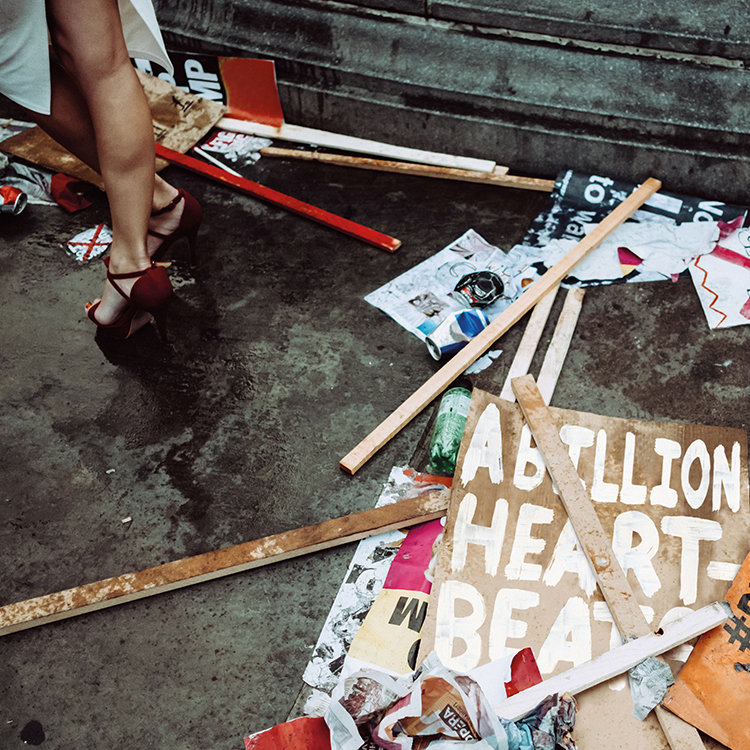

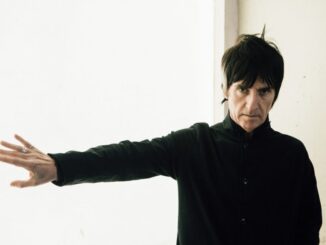
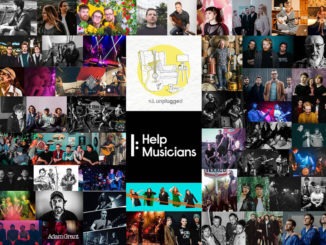
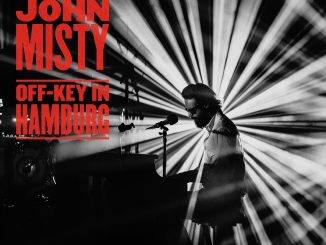

Be the first to comment